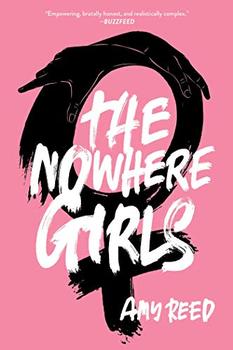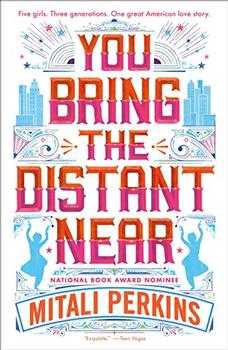Summary | Excerpt | Reviews | Beyond the book | Read-Alikes | Genres & Themes | Author Bio

September 11, 2001 is a date that few Americans will ever forget. It was on this day that our country experienced its single greatest terrorist attack on home soil. It was a tragedy that rocked us to our very core, but – somehow, some way – the country felt united in those following days and weeks after the attack. Wendy Mills, in her excellent New York City-set YA novel, All We Have Left, explores this idea, showing how tragedy can aid in restoring the broken past.
Mills, in alternating chapters, tells her story using the voices of Alia and Jesse, two sixteen-year-old girls from different times and different backgrounds.
Alia's story begins in September 2001 just after the school year begins. She's a rebellious artist, with a desire to attend NYU and learn how to become a comic book illustrator. One day she gets caught smoking marijuana in the girls' bathroom, and the next day she decides to wear her hijab (head covering) in public, showing a declaration of her Islamic faith. It's strange timing, and her parents doubt her sincerity. Still, Alia bravely puts on the hijab and enters a world that's growing more weary of Muslims by the day.
She goes to visit her father at his office in one of the World Trade Center buildings to convince him that she's actually a responsible person who happened to have made a bad mistake. It's here that tragedy hits, and the following pages are where Mills does her best storytelling. Alia's sections manage the difficult task of being both heartwarming and heartbreaking.
Jesse's story is set in the present time. She's similar to Alia in that she's a good person who has a tendency to make bad choices. After befriending Nick Roberts, her school's bad boy, she goes on an anti-Muslim painting spree where she writes "Terrorists go home" on a wall. She gets caught by the police, and her punishment is to do community service hours at the Islam Peace Center. For Jesse, being around Muslims is a big deal: Her brother, Travis, was killed in the 9/11 attack when he was only nineteen, and her bigoted father blames all Muslims for his death. Jesse says, "Dad doesn't like anyone he considers a foreigner, but he carries a bottomless well of hate for Muslims, which he often vents in a rage-filled rant at the TV."
After spending time at the Islam Peace Center, Jesse's eyes open to a world far larger than the narrow view she held previously. The transformation in Jesse's outlook is so precise that the novel often feels like a work of narrative nonfiction.
As the story nears its ending, the two sections collide, and the impact is truly astonishing. There were moments where I felt breathless. All We Have Left, with its realism and genuine feelings, creates a rare kind of reading experience where you don't want to – no, I mean can't – put the novel down.
Mills eloquently captures the feelings of the early millennium. Culturally, she recreates the days of MTV's Total Request Live and of Blink-182's airwaves' hits. She writes with a heightened curiosity of religious otherness, and also brings back a sense of kindness that seems rare in our current society. For example, Alia, on multiple occasions, speaks about goodness being found in people who are inherently different than she is. She says, "Just because people do bad things in the name of religion doesn't make the religion bad. People do crappy things, people do awesome things. That's just people." She also states, "People do terrible things. People do beautiful things. It's against the black backdrop of evil that the shining light of good shows the brightest. We can't just focus on the darkness of the night, or we'll miss out on the stars." It's a striking reminder how a young teenager can be the wisest person around.
All We Have Left is about celebrating our differences and finding a way to connect. It's about love and life, and it's about uncovering new friends and possibilities. There can be hope; there can be a future. After all, all we have left is each other.
![]() This review was originally published in The BookBrowse Review in September 2016, and has been updated for the
August 2017 edition.
Click here to go to this issue.
This review was originally published in The BookBrowse Review in September 2016, and has been updated for the
August 2017 edition.
Click here to go to this issue.

If you liked All We Have Left, try these:

by Amy Reed
Published 2019
Three misfits come together to avenge the rape of a fellow classmate and in the process trigger a change in the misogynist culture at their high school transforming the lives of everyone around them in this searing and timely story.

by Mitali Perkins
Published 2019
This elegant young adult novel captures the immigrant experience for one Indian-American family with humor and heart.
Your guide toexceptional books
BookBrowse seeks out and recommends the best in contemporary fiction and nonfiction—books that not only engage and entertain but also deepen our understanding of ourselves and the world around us.